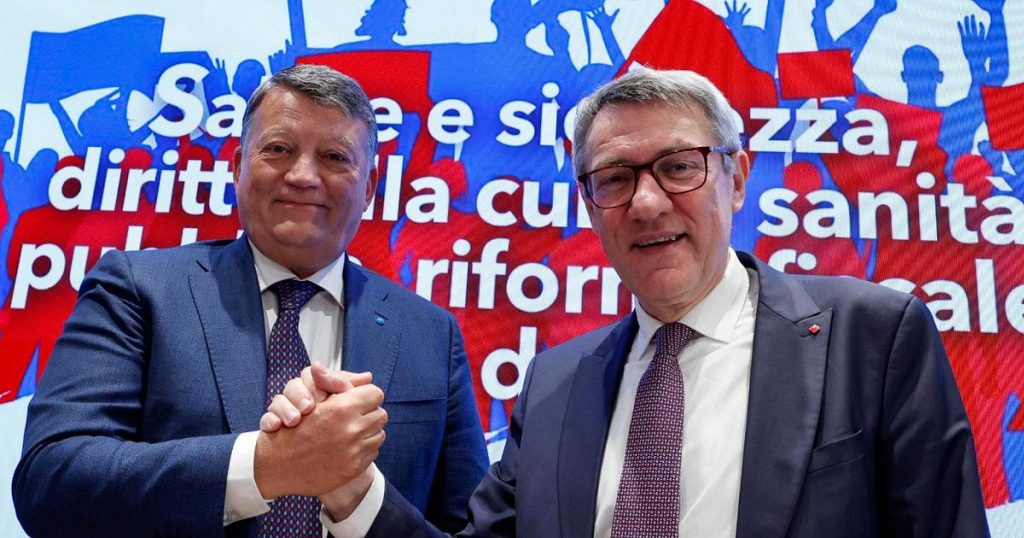Cgil and Uil unions have launched a protest against the economic policies of the Giorgia Meloni government, calling for a general strike on November 29. This move has further divided the union front and reignited tensions with the government. Giorgia Meloni, the Prime Minister, has expressed surprise at the unions’ decision to protest before the scheduled meeting on Tuesday at Palazzo Chigi and pointed out that there are aspects of the budget that should be appealing to the unions. The Lega party has criticized the unions, calling their strike action ridiculous and claiming that they are protesting against income increases.
The general strike, supported by opposition parties, will include eight hours of work stoppage and territorial demonstrations. Meanwhile, discussions are underway in the political sphere regarding potential adjustments to the budget law, such as regulations on cryptocurrencies and the introduction of financial representatives in companies receiving public aid. Amendments are expected to be presented by November 11 with the aim of finalizing the budget before Christmas. However, these proposed changes seem to be disconnected from the issues that led to the general strike, focused on criticisms of taxation, wages, pensions, healthcare, and workplace safety.
The grievances expressed by Cgil and Uil through their platform include calls for changes to the budget that address fundamental issues facing the country. They reject austerity measures and advocate for increasing purchasing power, funding for healthcare, education, public services, and industrial policies. The unions argue that the budget fails to address these critical challenges and instead exacerbates existing problems. They propose targeting excess profits, wealth, and tax evasion to generate revenue, rather than simply reducing the tax burden. The Lega party has criticized the unions for opposing wage increases for 14 million employees earning up to 40,000 euros, highlighting its measures to reduce precarious employment, increase salaries, and support lower-income earners.
As discussions continue, the government’s invitation to meet on November 5 may not be sufficient to resolve the conflict. Auditions at the Chamber of Deputies will commence on November 4 and culminate on the 7th with the appearance of Economy Minister Giancarlo Giorgetti. Union leaders Landini and Bombardieri have expressed skepticism about the government’s willingness to make significant changes, emphasizing that they are prepared to reconsider the strike decision if the government demonstrates a willingness to address their concerns. In contrast, Cisl leader Luigi Sbarra has highlighted positive aspects of the budget, noting that the majority of the 30 billion euros allocated align with the union’s demands.
The Cisl has expressed disagreement with the criticisms made by the Cgil leader, who emphasized the importance of advocating for workers’ interests rather than solely praising the government. This statement led to tensions between the unions, with Sbarra advising against aligning with political opposition forces unnecessarily. The differing perspectives within the union movement reflect broader divisions regarding how to engage with the government and address the economic challenges facing workers in Italy. As the situation evolves, it remains to be seen whether dialogue between the unions and the government can lead to a resolution that satisfies all parties involved.


